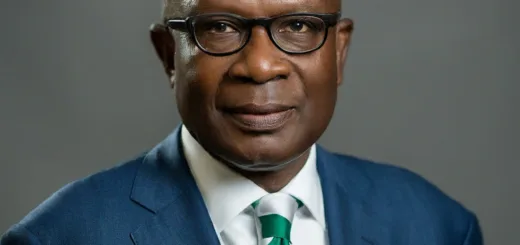DSS Ranks & Salary Structure in Nigeria (2026)
The Department of State Services, also referred to as DSS or SSS, pays its employees one of the highest monthly wages in Nigeria. They are the only government organization with this authority, and one of their responsibilities is to acquire intelligence for Nigeria.

However, we shall explore their extraordinarily high earning potentials here and learn about a variety of possibilities. It might be worthwhile to investigate positions that pay more or give the same pay but less benefits.
Additionally, we’ll introduce you to a DSS’s functions in this article. Let’s move on to the subject at hand: how much money does the Department of State Services make?
DSS RANKS IN NIGERIA
Even though the Nigerian State Security Service is obliged to maintain its secrecy, important information occasionally leaks.
This group of experts appears to have a rank structure resembling that of other governmental security organizations, such as the Nigerian military, air force, navy, and police.
In areas where we were unable to collect information about the DSS’s payment mechanism, we were nevertheless able to obtain the rank profile.
The Nigerian State Security Service has four stages that one must pass through in order to reach the top: non-officers, junior officers, senior officers, and high-ranking officers.
The Department of State Security Services has the following ranks.
NON-OFFICERS:
- Recruit
- Private
- Lance Corporal
- Corporal
- Sergeant
- Staff Sergeant
JUNIOR OFFICERS:
- Second Lieutenant
- Lieutenant
- Captain
SENIOR OFFICERS:
- Major
- Lieutenant Colonel
- Colonel
HIGH RANKING OFFICERS:
- Brigadier General
- Major General
- Lieutenant General
- General
An officer would advance 16 ranks, as seen in the above chart, before becoming the DSS’s chief. The first level is comprised of 6 stages for non-officers, 3 stages for junior officers, and the same 6 stages for senior officers. The top officer level is where the final four phases—a total of 16 steps—are provided.
NIGERIA DSS SALARY STRUCTURE
What does a DSS official in Nigeria make per month? The same query has been posed more than a thousand times by numerous Nigerians. This is due to the fact that there doesn’t seem to be any information on the monthly salaries of DSS employees in Nigeria.
Since the DSS is a secret service, they would prefer that no one learn anything about them. The aforementioned numbers were not gathered from official sources, but rather from a variety of websites.
The Department of State Services has a sizable number of standards that determine employee pay. Their grade level, duration of service, and present employment all play a role in this.
The DSS pays a monthly salary of ₦90,000 to sergeant employees on grade 8, whereas a grade 7 employee makes just over ₦75,434 before taxes and pension payments, according to statistics acquired. There is a lot more to this agency than you may realize, aside from basic compensation. Depending on how long you’ve worked there, you may receive annual raises in addition to allowances and perks.
The Director-General of the DSS is paid up to N1.3 million each month, according to multiple trustworthy people with knowledge of these issues and close links to them. As it is significant for state officials in roles like those at DSS Officials who oversee the Nigeria retirement pensions program, this income amount won’t be withheld from disclosure (NPC).
Depending on the level of competence required for the tasks, the lowest-ranking employees there can make between N5 and N10k per hour. This covers things like processing papers and entering data, among other things.
DSS TRAINING ALLOWANCE

There is no training allowance provided by the Department of State Services. This data was gathered from a former participant who took part in the screening process. They do, however, receive one of the greatest allowances in Nigeria for a security company.
Once we receive reliable information on that, we will provide information on our website about the training’s requirements and duration.
WHAT YOU NEED TO KNOW ABOUT THE DSS
The government department in charge of resolving all escalating issues with internal security is the Department of State Services. We won’t know anything about the security agency because of how obviously delicate their work is.
The Department of State Services is another name for the State Security Service (DSS). Additionally, this university is a key intellectual force in Nigeria. The president has total authority over the DSS.
The heads are also chosen by the leader of the Federal Republic of Nigeria’s government. Its primary responsibilities are similarly limited to the county. They have their headquarters in Abuja. The SSS (or DSS) is a department of the administration and was established by a Presidential Decree in 1999. The National Security Advisor is still in charge of it.
PRINCIPAL FUNCTIONS OF DSS IN NIGERIA
You are aware that the DSS was created for a specific purpose. The Nigerian DSS’s main duties or responsibilities are as follows:
- The DSS’s primary duty is to protect prominent Nigerians, including the president, vice president, governors, and their families. It also has responsibility for protecting other high-profile individuals.
- The State Security Service of Nigeria also defends the Nigerian state from potential assaults.
- The application of criminal law in Nigeria.
- The DSS also supports Nigeria’s traditional law enforcement agencies in maintaining social order.
- Operations against terrorism and insurgency in Nigeria, as well as other responsibilities as occasionally assigned by the President of Nigeria.
CONCLUSION
This concludes our information of the Department of State Services. We focused primarily on emphasizing the differences in remuneration between ranks and roles for their workers. We think that this information is fairly true or closely related to reality.
Almost all of the information from this particular set of intelligence officials is secret because of the obviously delicate nature of their work. It is therefore very difficult to learn about their compensation scheme. We are only able to rely on information that occasionally leaks to the public.

